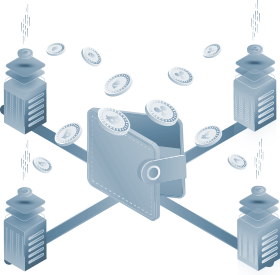Cryptocurrency Wallet
Back to 2009 when Bitcoin was first established as a digital coin, a new need was defined on the market – how to store cryptocurrency? Apparently, a demand of a wallet was requested. Anyway, cryptocurrency wallets have nothing to do with your physical pocket wallet. You need one for holding, trading, mining, staking or even to simply use your coins. I would like to present you a short summary of what is a cryptocurrency wallet and how does it work.

